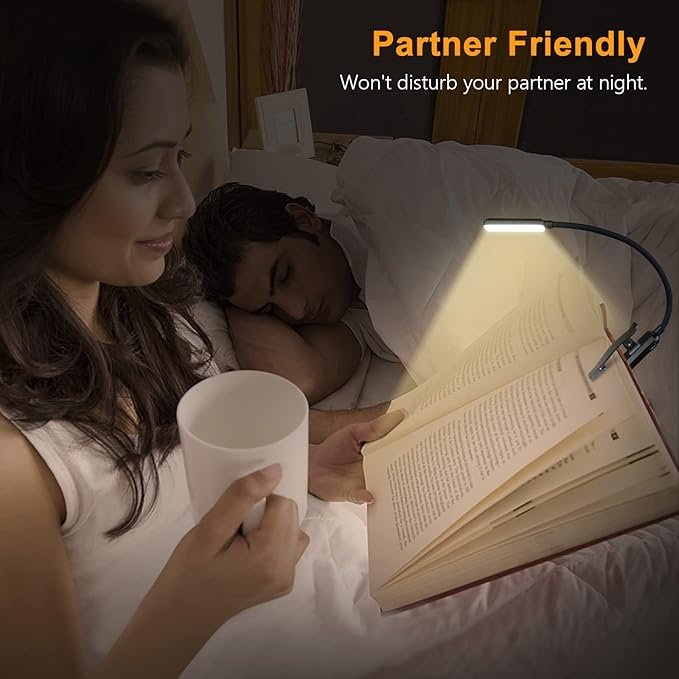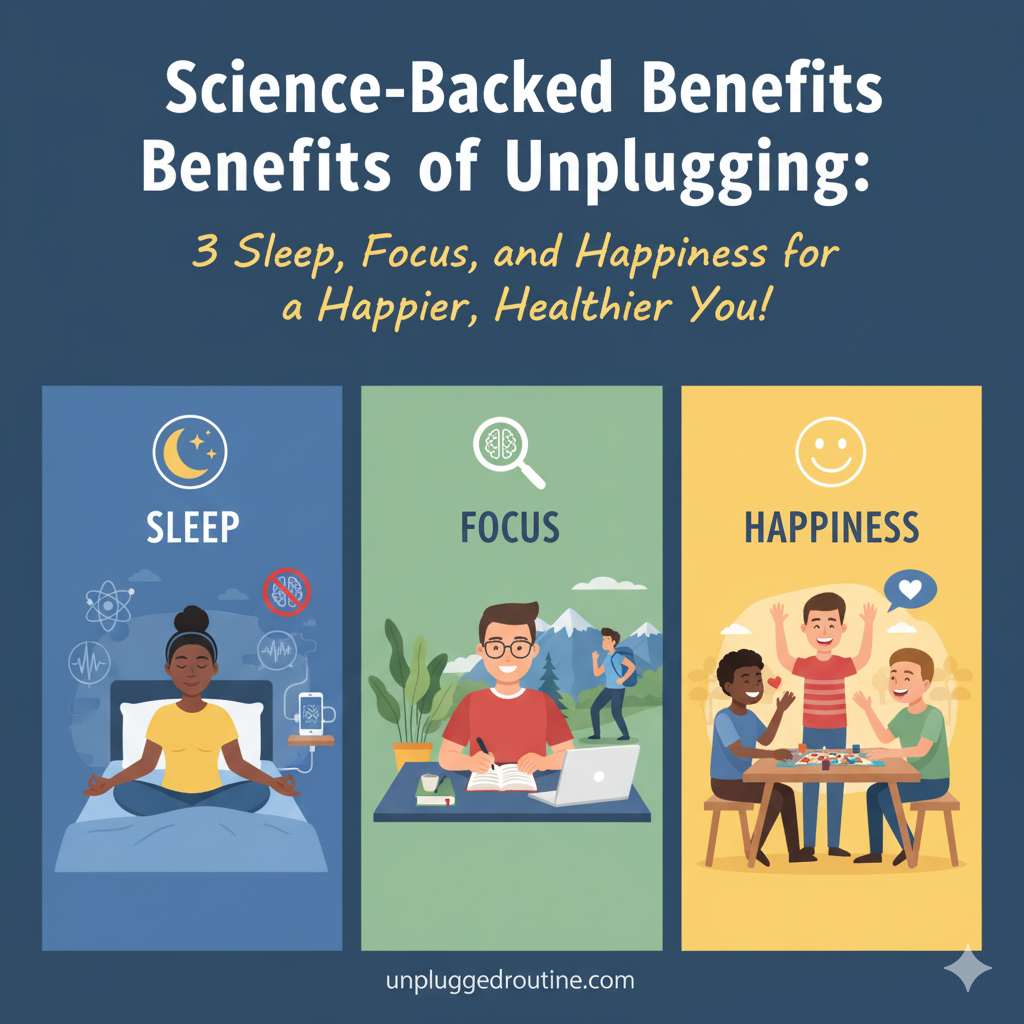In a world that’s constantly buzzing, beeping, and demanding our attention, the idea of “unplugging” often feels like a quaint, almost impossible notion. We’re tethered to our devices, our work, and the endless stream of information. But what if the secret to feeling better, sleeping deeper, focusing sharper, and genuinely increasing your happiness wasn’t about adding more to your life, but consciously taking something away?
The truth is, science is increasingly confirming what many instinctively feel: our brains need a break from the digital deluge. This isn’t just anecdotal evidence; it’s rooted in fascinating research about neurobiology, psychology, and human behavior.
Let’s dive deep into the compelling, science-backed benefits of unplugging, focusing on three core pillars that profoundly impact our well-being: Sleep, Focus, and Happiness. Get ready to understand why stepping away from screens is one of the most powerful things you can do for yourself, backed by solid research.
The Brain on Digital: A Quick Scientific Snapshot
Before we explore the benefits of unplugging, it’s helpful to understand what happens to our brains when we’re constantly plugged in.
- Dopamine Overload: Every notification, like, or new email triggers a tiny hit of dopamine – a neurotransmitter associated with pleasure and reward. This creates a powerful feedback loop, making us constantly crave more digital interaction. This can lead to a state of constant craving and checking, reducing our ability to simply be. (Source: Psychology Today)
- Prefrontal Cortex Fatigue: Your prefrontal cortex is the “CEO” of your brain, responsible for executive functions like decision-making, problem-solving, and impulse control. Constant digital demands, task-switching, and information overload exhaust this crucial area, leading to decision fatigue and reduced cognitive efficiency. (Source: Neuroscience News)
- Blue Light Disruption: The blue light emitted from our screens, particularly in the evenings, tricks our brains into thinking it’s still daytime. This suppresses the production of melatonin, the hormone vital for sleep, making it harder to fall asleep and impacting sleep quality. (Source: Harvard Health)
- Chronic Stress Response: The persistent feeling of needing to be “on call,” the fear of missing out (FOMO), and exposure to negative news can elevate cortisol levels, leading to a state of chronic stress and anxiety. (Source: Frontiers in Psychology)
Understanding these impacts makes the case for unplugging not just compelling, but essential.
The Science-Backed Benefits of Unplugging: 3 Core Pillars
Now, let’s explore the powerful, evidence-based ways that unplugging can profoundly improve your life.
Pillar 1: Deeper Sleep
In an age where sleep deprivation is rampant, unplugging emerges as one of the most effective, accessible solutions.
- Melatonin Restoration: Research consistently shows that exposure to blue light from screens in the hours leading up to bedtime significantly suppresses melatonin production. A study published in the Journal of Clinical Endocrinology & Metabolism found that even moderate blue light exposure before bed can delay melatonin release, leading to difficulties falling asleep. By unplugging, especially in the evening, you allow your body’s natural circadian rhythm to function optimally, signaling to your brain that it’s time for rest.
- Reduced Cognitive Arousal: Beyond blue light, the content we consume online (emails, news, social media) can be stimulating, keeping our minds active and preventing relaxation. When you unplug, you remove these cognitive triggers. This allows your brain waves to naturally slow down, transitioning from the alert beta waves to the calmer alpha and theta waves associated with relaxation and sleep readiness. A study in PLoS One highlighted how late-night media use negatively impacts sleep onset and quality.
- Improved Sleep Structure: It’s not just about falling asleep; it’s about the quality of that sleep. Unplugging helps restore the natural architecture of sleep, including crucial REM (Rapid Eye Movement) sleep and deep slow-wave sleep, both vital for memory consolidation, emotional regulation, and physical restoration. Without digital disruptions, your sleep cycles can flow unimpeded.
The Scientific Takeaway: Prioritizing screen-free time before bed is one of the most impactful, science-backed strategies for improving both the quantity and quality of your sleep.

Pillar 2: Sharper Focus
Our modern digital environment is a master at fragmenting our attention. Unplugging is the antidote, helping to rebuild our capacity for deep, sustained focus.
- Restoring Attention Capacity: Constant notifications and task-switching train our brains for superficial, fragmented attention. Dr. Earl Miller, a neuroscientist at MIT, notes that our brains are not designed for multitasking; we’re simply switching tasks very quickly, which is highly inefficient and depletes cognitive resources. When you unplug, you remove these constant distractions, allowing your prefrontal cortex to recover and rebuild its capacity for sustained concentration.
- Enhancing Cognitive Control: Studies on the effects of digital media show that heavy users often exhibit lower performance on tasks requiring sustained attention and cognitive control. Taking regular breaks, as shown in research on attention restoration theory, allows your “directed attention” to recuperate. Activities like spending time in nature, which is inherently low-stimulation, are particularly effective.
- Reducing Information Overload: Our brains have a limited capacity for processing information. The sheer volume of data we encounter daily through digital channels leads to cognitive overload, making it harder to discern what’s important and focus on any single task. Unplugging provides a necessary respite, allowing your brain to clear its cache, so to speak, and approach new information with greater clarity and less fatigue.
The Scientific Takeaway: Unplugging is a critical practice for reversing the effects of digital fragmentation, enabling your brain to regain and maintain its natural ability to focus deeply and effectively.
Pillar 3: Greater Happiness
Beyond sleep and focus, the ultimate prize of unplugging is often a profound increase in overall happiness and well-being. This isn’t just a feeling; it’s measurable.
- Reducing Social Comparison & FOMO: Social media often presents a curated, idealized version of others’ lives, leading to social comparison, feelings of inadequacy, and the “fear of missing out” (FOMO). Research published in the Journal of Social and Clinical Psychology has linked heavy social media use to increased feelings of loneliness and depression. Unplugging provides a crucial break from this comparison trap, allowing you to appreciate your own life and experiences without external pressure.
- Boosting Real-World Connections: Humans are social creatures, and genuine face-to-face interaction is a fundamental driver of happiness and well-being. Studies have shown that strong social bonds correlate with increased longevity and greater life satisfaction. When you unplug, you’re more present for these in-person interactions, leading to deeper, more meaningful conversations and stronger relationships, which directly contribute to happiness. (Source: American Journal of Public Health)
- Cultivating Mindfulness & Presence: Digital devices often pull us out of the present moment, constantly shifting our focus to what’s next or what’s happening elsewhere. Unplugging encourages mindfulness—the practice of being fully present and aware of the current moment without judgment. Research consistently links mindfulness practices to reduced stress, increased emotional regulation, and greater overall happiness and life satisfaction. (Source: Mindfulness journal)
- Enhancing Self-Esteem: Disconnecting from the constant feedback loop of digital validation allows you to rebuild self-esteem from within. Instead of seeking external affirmation, you reconnect with your intrinsic value and pursue activities that are personally fulfilling, not just shareable.
The Scientific Takeaway: By reducing comparison, fostering genuine connections, and promoting mindfulness, unplugging directly contributes to a more authentic, sustainable sense of happiness and contentment.

How to Harness These Science-Backed Benefits: Your Unplugging Action Plan
Understanding the “why” is powerful, but implementing the “how” is where the magic happens. Here’s a simple, actionable plan to integrate unplugging into your life and reap these profound benefits:
1. Define Your “Unplug Zones”
Start by identifying specific times or places where screens are off-limits.
- The Bedroom Sanctuary: Make your bedroom a screen-free zone, especially 1-2 hours before sleep. Charge your phone outside the room.
- The Dinner Table Rule: No phones or tablets during meals, fostering present conversation.
- Morning Power Hour: Avoid screens for the first hour after waking to set a calm tone for your day.
2. Schedule “Digital Downtime”
Just as you schedule meetings or workouts, schedule dedicated unplugging blocks.
- Weekend Half-Day: Designate a Saturday or Sunday afternoon for a complete digital break.
- Evening Wind-Down: Plan 30-60 minutes before bed for reading a physical book, journaling, or listening to music without a screen.
- Micro-Breaks: Take 5-10 minute screen-free breaks throughout your workday to step away and stretch or look out a window.
3. Cultivate Screen-Free Alternatives
Boredom is the enemy of unplugging. Have appealing alternatives ready.
- Engage Your Senses: Go for a walk in nature, listen to music, cook, bake, or garden.
- Connect with Others: Call a friend, visit family, or play a board game.
- Mindful Activities: Meditate, practice yoga, draw, paint, or simply sit in quiet contemplation.
- Learn Something New: Pick up a hobby you’ve always wanted to try.
4. Manage Notifications (They’re Sabotaging Your Focus!)
Turn off non-essential notifications. Most apps don’t need to alert you constantly. Use “Do Not Disturb” mode liberally. For important contacts, utilize “favorites” settings so their calls can still come through if truly urgent.
5. Be Patient and Persistent (It’s a Habit!)
Building new habits takes time and effort. You might slip up, and that’s okay. The goal isn’t perfection, but consistent effort and conscious redirection. Each time you choose to unplug, you’re strengthening those neural pathways that support calm, focus, and happiness.
Your Path to a More Vibrant Life Starts Here
The scientific evidence is overwhelmingly clear: taking conscious, regular breaks from our digital devices isn’t just a trend; it’s a fundamental necessity for our well-being. By embracing the power of unplugging, you’re not just stepping away from a screen; you’re stepping towards deeper sleep, sharper focus, and a profound increase in genuine happiness.
These aren’t just empty promises; they are the proven, science-backed benefits waiting for you. The journey to a calmer, more present, and ultimately happier you begins with a single, intentional step away from the digital noise.
Ready to experience these transformative benefits for yourself? Start your unplugging routine today and reclaim your peace, one screen-free moment at a time! Visit unpluggedroutine.com for more guidance, tips, and inspiration to help you integrate these powerful practices into your daily life.